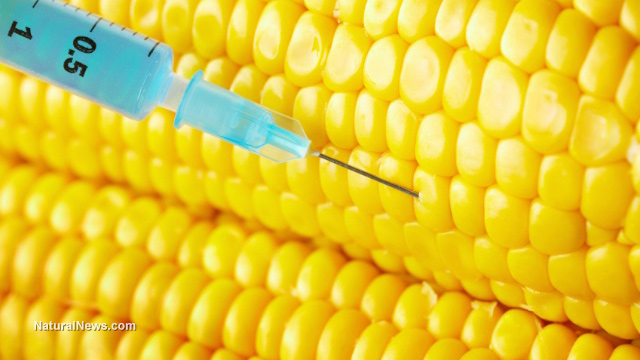 GM corn offers no benefits for Vietnamese farmers, top scientist says
GM corn offers no benefits for Vietnamese farmers, top scientist says(NaturalNews) Prominent Vietnamese scientists have publicly stated that genetically modified (GM) corn will not solve any of the country's agricultural problems and indeed offers no benefit over varieties already being grown.
These statements fly in the face of the government's policy of aggressively promoting of GM crops.
"Developing GM crops will make Vietnamese farmers more dependent on foreign seed suppliers," said Dr. Tran Hong Uy, former head of the Maize Research Institute, which is part of the Ministry of Agriculture and Rural Development (MARD).
"GM crops will not help increase productivity and reduce cultivation costs, and they will spoil the ecological environment and biodiversity in addition to harming people's health."
Government pushing GM agriculture boom
According to Pham Van Toan, head of the Vietnam Academy of Agricultural Sciences, the Vietnamese government wants 30 to 50 percent of the country's total farmland to be growing GM crops by 2020. The major reason for this push is to increase domestic production of corn and soy for animal feed.
Vietnam's livestock industry has suffered recently due to the need to import large quantities of feed.
There is currently no GM crop cultivation in Vietnam, but Toan says that government hopes that cultivation will begin next year. In August, MARD approved cultivation of four strains of GM corn for both human and animal consumption, and in early October the Ministry of Natural Resources and Environment issued a certificate of safety to a new Monsanto GM corn variety, which could lead to its import or domestic cultivation. Even before Toan's statement, these moves were widely interpreted as strong government support for GM agriculture.
But Dr. Uy warned that GM crops are simply not the "magic wand" that the government is promising and would not actually solve any of the country's agricultural woes. For one thing, studies show that the yield of the approved GM varieties is 8-10 tons per hectare, exactly the same as the yield of non-GM varieties already being grown in Vietnam.
"GM maize varieties will not help solve existing problems, because they can't improve productivity, and are not drought-resistant," Dr. Uy said. "They are weed- and insect-resistant, but these are not big problems for Vietnam."
Dr. Uy also raised concerns about the health and environmental effects of GM crops, as well as the cost of farmers becoming more dependent on imported seed sold by foreign corporations.
For these reasons, Dr. Uy says, it would be a mistake to start growing GM corn in Vietnam
GM crops offer no advantages
Dr. Tran Dinh Long, chair of the Vietnam Plant Seed Association, confirmed Dr. Uy's assertion that the approved GM corn varieties are herbicide- and insect-resistant, but do not have a higher yield than native varieties. He also agreed that the real problems facing Vietnamese agriculture are drought and the need for higher yields.
"Why should we import GM maize varieties if we have been warned that this would make us rely more heavily on foreign supply sources?" agreed a Vietnamese agriculture expert, speaking to
VietNamNet on condition of anonymity. "Why should we insist on GM crop development if Europe protests against genetically modified organism (GMO), while India and China are having problems with GMO?"
Drs. Long and Uy both said that a much better solution for Vietnam's livestock sector would be to focus on developing better corn hybrids through conventional breeding techniques.
According to Dr. Uy, some promising hybrids have already been developed that have high yields, high quality and reasonable prices. These hybrids are also highly adaptable to different regions, and the seed can be stored for long periods.
http://www.naturalnews.com/047381_GM_corn_Vietnamese_farmers_GMO_crops.html